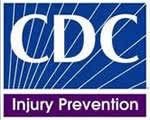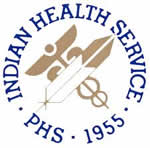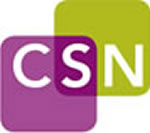National Organizations and Federal Agencies
Many national organizations and federal agencies are involved in suicide prevention. They are valuable sources of information, and some offer funding opportunities, training, technical assistance, and resources.

U.S. Substance Abuse and Mental Health Services Administration (SAMHSA)
http://www.samhsa.gov
SAMHSA funds and supports the National Suicide Prevention Lifeline and SPRC and manages the Garrett Lee Smith Suicide Prevention Program, which funds state, territorial, and tribal programs to prevent suicide among youth. It developed the National Registry of Evidence-based Programs and Practices (NREPP), which reviews evidence of effectiveness for prevention programs on topics related to behavioral health, including suicide. SAMHSA also sponsors several prevention campaigns.

988 Suicide & Crisis Lifeline
https://988lifeline.org/
The 988 Suicide & Crisis Lifeline is a national network of local crisis centers that provides free and confidential emotional support to people in suicidal crisis or emotional distress 24 hours a day, 7 days a week in the United States. The Lifeline is committed to improving crisis services and advancing suicide prevention by empowering individuals, advancing professional best practices, and building awareness.

Tribal Training and Technical Assistance (TTA)
https://www.samhsa.gov/tribal-ttac
The Tribal Training and Technical Assistance (TTA) Center provides TTA on mental and substance use disorders, suicide prevention, and mental health promotion.

American Association of Suicidology (AAS)
http://www.suicidology.org
AAS is a nonprofit organization that promotes research, public awareness programs, public education, and training for professionals and volunteers. It serves as a national clearinghouse for information on suicide, publishing and disseminating statistics and suicide prevention resources. AAS also hosts national annual conferences for professionals and survivors.

American Foundation for Suicide Prevention (AFSP)
http://www.afsp.org
AFSP is a nonprofit organization that funds research to advance understanding of suicide and suicide prevention. It also offers educational programs and resources for professionals, survivors of suicide loss, and the public about suicide prevention. AFSP’s Public Policy Division, SPAN USA, promotes and keeps track of policies and legislation related to suicide prevention. AFSP’s chapters organize suicide awareness events and build connections among local resources and services addressing suicide prevention.

National Institute of Mental Health (NIMH)
http://www.nimh.nih.gov/health/topics/suicide-prevention/index.shtml
The NIMH website has a section on suicide prevention that includes information and resources useful for a variety of audiences, including researchers, health care professionals, and consumers. NIMH also conducts research on suicide and suicide prevention.

National Center for Injury Prevention and Control (NCIPC)
http://www.cdc.gov/ViolencePrevention/suicide/index.html
NCIPC, located at the U.S. Centers for Disease Control and Prevention, is a valuable source of information, resources, and statistics about suicide, suicide risk, and suicide prevention. Its website includes links to a number of statistical databases, including WISQARS (Web-based Injury Statistics Query and Reporting System), YRBSS (Youth Risk Behavior Surveillance System), the National Violent Death Reporting System, and the National Vital Statistics System.

Indian Health Service (IHS)
http://www.ihs.gov/suicideprevention/
The IHS Community Suicide Prevention website provides American Indian and Alaska Native communities with culturally appropriate information about best and promising practices, training opportunities, ongoing activities, potential partnerships, and other information regarding suicide prevention and intervention. This information can help communities and schools create or adapt suicide prevention programs that are tailored to their needs.

Suicide Awareness Voices of Education (SAVE)
http://www.save.org
SAVE is a nonprofit organization whose mission is to prevent suicide through public awareness and education, reduce stigma, and serve as a resource to people affected by suicide. Its prevention and education programs are designed to increase knowledge about depression, suicide, and accessing community resources and to increase understanding and use of intervention skills to help prevent suicide.

Jed Foundation
The Jed Foundation is a nonprofit organization that protects emotional health and prevents suicide among college and university students by: (1) helping colleges and universities create comprehensive programs to promote mental health and prevent suicide, (2) helping parents recognize and find support for a child’s mental health problems, and (3) helping young people recognize and find help for their mental health problems as well as those of their peers and friends.

Trevor Project
http://www.thetrevorproject.org/
The Trevor Project is a nonprofit organization that provides crisis intervention and suicide prevention services to LGBTQ youth ages 13-24, educates young people and adults on detecting and responding to suicide risk among LGBTQ youth, and advocates for laws and policies that will reduce suicide among LGBTQ young people.

Children’s Safety Network (CSN)
http://www.childrenssafetynetwork.org
CSN is a national resource center for injury and violence prevention, including suicide prevention. CSN provides technical assistance on injury prevention planning, programs, and best practices; analyzes and interprets injury data; partners with national organizations and federal agencies to promote child and adolescent health and safety; disseminates injury prevention research; conducts trainings and presentations; and produces publications.

Injury Control Research Center for Suicide Prevention (ICRCS)
http://suicideprevention-icrc-s.org/
This CDC-funded injury control research center promotes a public health approach to suicide prevention through a collaborative process of research, outreach, and education. Its goal is to draw suicide prevention directly into the domain of public health and injury prevention and link it to complementary approaches in mental health. The center conducts research projects, provides technical assistance, and organizes conference calls, webinars, and an annual Research Training Institute for those working in the suicide prevention field or engaged in suicide-related research.
